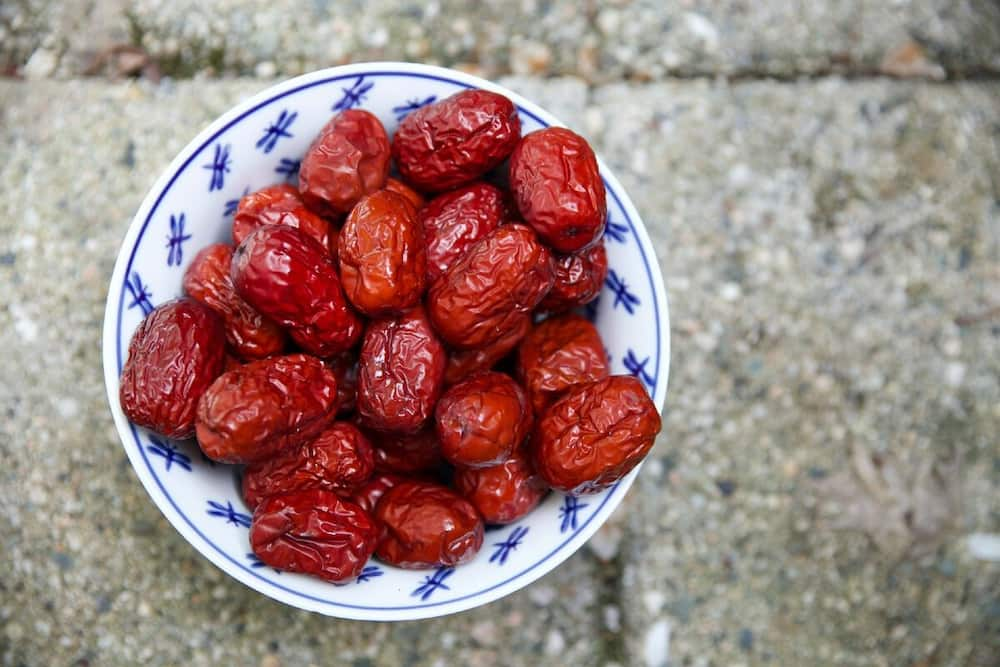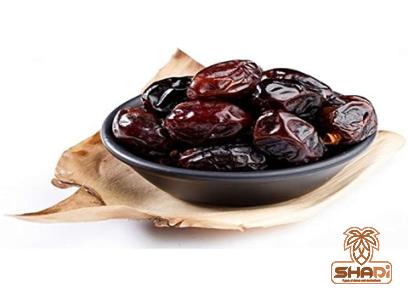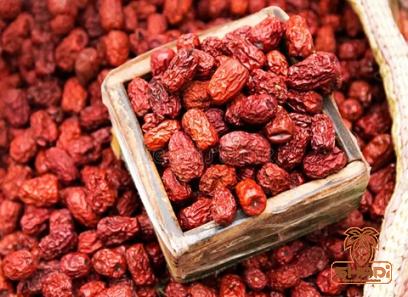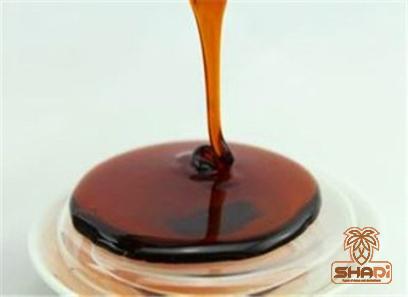However, these Chinese little fruit, Red dates, have numerous benefits but they also may have some side effects when eaten a lot. Due to the numerous health advantages they offer, red dates, which are called Xi’an chunhefang in Chinese, are one of the foods that are consumed in China the most frequently. According to traditional Chinese medicine (TCM), red dates are an exceptionally rich source of certain essential elements. The use of red dates can be traced back as far as 8,000 years, to our ancestors who lived in the Neolithic or Stone Age. The production of wine from red dates can be traced back to China’s ancient Zhou Dynasty (1046-256 B.C.), during which time the dates were employed. The tree that bears red dates is most common in Asian countries, although it is also found in several Middle Eastern countries and, more recently, in southern European countries. In general, Asian countries are the most likely to have this tree. The presence of essential minerals in red dates is the primary reason for their exceptional nutritional value. A single serving of red dates, which is equal to 100 grams, can provide you with 40 percent of the recommended daily intake (RDI) of copper as well as 16 percent of the RDI of potassium.  However, this is not all that red dates have to offer; in addition to the minerals listed above, they also include manganese, magnesium, iron, phosphorus, calcium, and zinc. Although red dates are extremely healthy, there are some recommendations that should be followed in order to get the most out of the food and ensure that it is possible for the dates to disclose their full nutritional potential. Traditional Chinese medicine is built on a holistic perspective of the world, and in order to understand why there are certain foods that should not be eaten together, we need to understand the foundation of traditional Chinese medicine. Although two components may be beneficial to one’s health when consumed separately, the interaction of their individual features may nullify the advantages enjoyed by the other, rendering the former ineffectual in improving one’s health and extending their lifespan. The following is a list of things that should not be consumed with red dates. You should limit how frequently you consume red dates because eating too many of them can lead to bloating, and people who have diabetes should avoid eating dates altogether because of the large amount of sugar they contain. After eating dates, it is recommended that you drink some water. Avoid eating red dates if you have a bloated stomach, excessive bodily fluid, or a yellowish coating on your tongue. Red dates can also cause an unpleasant coating on the tongue.
However, this is not all that red dates have to offer; in addition to the minerals listed above, they also include manganese, magnesium, iron, phosphorus, calcium, and zinc. Although red dates are extremely healthy, there are some recommendations that should be followed in order to get the most out of the food and ensure that it is possible for the dates to disclose their full nutritional potential. Traditional Chinese medicine is built on a holistic perspective of the world, and in order to understand why there are certain foods that should not be eaten together, we need to understand the foundation of traditional Chinese medicine. Although two components may be beneficial to one’s health when consumed separately, the interaction of their individual features may nullify the advantages enjoyed by the other, rendering the former ineffectual in improving one’s health and extending their lifespan. The following is a list of things that should not be consumed with red dates. You should limit how frequently you consume red dates because eating too many of them can lead to bloating, and people who have diabetes should avoid eating dates altogether because of the large amount of sugar they contain. After eating dates, it is recommended that you drink some water. Avoid eating red dates if you have a bloated stomach, excessive bodily fluid, or a yellowish coating on your tongue. Red dates can also cause an unpleasant coating on the tongue.  Even though the fiber in dates can help digestion to some degree, people who struggle with digestive issues like constipation or indigestion should restrict the number of dates they eat. This is because dates contain a lot of sugar. It is best for people who are experiencing a toothache or cough to refrain from eating dates until their symptoms have improved. Chew, chew, and chew. It is important to thoroughly chew your dates because they have tough skin that is difficult to digest despite the fact that it is abundant in fiber. Consumption of dates should be limited for those who have a compromised digestive system, particularly older persons. When making decisions about what to eat, you should always keep the holistic idea of promoting and restraint in mind, even when more and more foods are being promoted as being good for you or healthy. Therefore, even with something as basic as going on a date, exercise moderation and mindfulness. Red dates contain antioxidant substances such as vitamins C and a, as well as other antioxidants such as phytonutrients, which protect our cells from damage caused by free radicals and lower the risk of numerous malignancies.
Even though the fiber in dates can help digestion to some degree, people who struggle with digestive issues like constipation or indigestion should restrict the number of dates they eat. This is because dates contain a lot of sugar. It is best for people who are experiencing a toothache or cough to refrain from eating dates until their symptoms have improved. Chew, chew, and chew. It is important to thoroughly chew your dates because they have tough skin that is difficult to digest despite the fact that it is abundant in fiber. Consumption of dates should be limited for those who have a compromised digestive system, particularly older persons. When making decisions about what to eat, you should always keep the holistic idea of promoting and restraint in mind, even when more and more foods are being promoted as being good for you or healthy. Therefore, even with something as basic as going on a date, exercise moderation and mindfulness. Red dates contain antioxidant substances such as vitamins C and a, as well as other antioxidants such as phytonutrients, which protect our cells from damage caused by free radicals and lower the risk of numerous malignancies.  Unstable ions, known as free radicals, can only gain their stability by “borrowing” electrons from nearby molecules, which in turn causes oxidative damage to the adjoining molecules. Antioxidants can neutralize free radicals at low to moderate concentrations, but at high concentrations, they can also react with healthy cells and cause oxidative damage to those cells. Moderation is necessary while consuming red date fruit due to its high antioxidant content, which may raise the risk of numerous malignancies. The dietary fibers found in red dates act as a natural laxative that stimulates bowel movement alleviates constipation and helps with a variety of other gastrointestinal issues, such as abdominal pain, gas, bloating, and flatulence, among others. However, consuming an excessive amount of dietary fiber can overstimulate bowel movement, which can result in a number of unpleasant side effects, including abdominal cramping, malabsorption, diarrhea, constipation, indigestion, intestinal gas, and intestinal obstruction, among others. If you currently consume a diet that is high in fiber, adding even more fiber to your diet (such as through red dates) may put you at increased risk for stomach issues. According to a study that was conducted in 2011 on 35,500 males, having high levels of vitamin E may increase the risk of prostate cancer by 17 percent.
Unstable ions, known as free radicals, can only gain their stability by “borrowing” electrons from nearby molecules, which in turn causes oxidative damage to the adjoining molecules. Antioxidants can neutralize free radicals at low to moderate concentrations, but at high concentrations, they can also react with healthy cells and cause oxidative damage to those cells. Moderation is necessary while consuming red date fruit due to its high antioxidant content, which may raise the risk of numerous malignancies. The dietary fibers found in red dates act as a natural laxative that stimulates bowel movement alleviates constipation and helps with a variety of other gastrointestinal issues, such as abdominal pain, gas, bloating, and flatulence, among others. However, consuming an excessive amount of dietary fiber can overstimulate bowel movement, which can result in a number of unpleasant side effects, including abdominal cramping, malabsorption, diarrhea, constipation, indigestion, intestinal gas, and intestinal obstruction, among others. If you currently consume a diet that is high in fiber, adding even more fiber to your diet (such as through red dates) may put you at increased risk for stomach issues. According to a study that was conducted in 2011 on 35,500 males, having high levels of vitamin E may increase the risk of prostate cancer by 17 percent.  A study that was conducted by the National Cancer Institute found that smokers who used high doses of beta-carotene supplements had a higher risk of developing lung cancer in comparison to individuals who did not take such supplements. A study that was conducted by the office of dietary supplements found that taking big amounts of vitamin E may raise the risk of having a stroke that is caused by bleeding. The dietary fibers in red dates offer a feeling of fullness in the stomach and help control overeating, which is a major contributor to obesity. Hypertension, often known as high blood pressure, is a disorder that affects millions of people all over the world and is the primary reason for a number of cardiovascular problems as well as other health issues. Potassium, which is found in red dates, is a natural vasodilator, meaning that it helps relax blood vessels, increases blood circulation, and relieves hypertension. Red dates are a fruit. On the other hand, consuming an excessive amount of red dates can cause our blood pressure to drop below normal levels, as well as symptoms such as weariness, dizziness, nausea, clammy skin, depression, impaired vision, and other related issues.
A study that was conducted by the National Cancer Institute found that smokers who used high doses of beta-carotene supplements had a higher risk of developing lung cancer in comparison to individuals who did not take such supplements. A study that was conducted by the office of dietary supplements found that taking big amounts of vitamin E may raise the risk of having a stroke that is caused by bleeding. The dietary fibers in red dates offer a feeling of fullness in the stomach and help control overeating, which is a major contributor to obesity. Hypertension, often known as high blood pressure, is a disorder that affects millions of people all over the world and is the primary reason for a number of cardiovascular problems as well as other health issues. Potassium, which is found in red dates, is a natural vasodilator, meaning that it helps relax blood vessels, increases blood circulation, and relieves hypertension. Red dates are a fruit. On the other hand, consuming an excessive amount of red dates can cause our blood pressure to drop below normal levels, as well as symptoms such as weariness, dizziness, nausea, clammy skin, depression, impaired vision, and other related issues.  If you are already taking medicine for high blood pressure, you should discuss adding red dates to your regimen with your physician first to make sure there is no risk of developing a food-drug intolerance. Consume red dates in moderation if you want to keep your calorie intake the same, as eating too many of them can cause your overall consumption of calories to rise. If you are already eating a healthy diet and getting the recommended amount of calories, then the additional calories that you get from red dates or any other fruit could prevent you from losing weight. Even if your goal is to reduce your body fat by eating red dates, you should still count them as part of your daily calorie total rather than adding to it. Consuming an excessive amount of red dates can have a detrimental impact on our metabolism, interfere with the digestion of meals, and lead to inadequate nutritional absorption. We are here to provide a range of date fruits for our customers. To get more information about red dates please contact us.
If you are already taking medicine for high blood pressure, you should discuss adding red dates to your regimen with your physician first to make sure there is no risk of developing a food-drug intolerance. Consume red dates in moderation if you want to keep your calorie intake the same, as eating too many of them can cause your overall consumption of calories to rise. If you are already eating a healthy diet and getting the recommended amount of calories, then the additional calories that you get from red dates or any other fruit could prevent you from losing weight. Even if your goal is to reduce your body fat by eating red dates, you should still count them as part of your daily calorie total rather than adding to it. Consuming an excessive amount of red dates can have a detrimental impact on our metabolism, interfere with the digestion of meals, and lead to inadequate nutritional absorption. We are here to provide a range of date fruits for our customers. To get more information about red dates please contact us.










Your comment submitted.